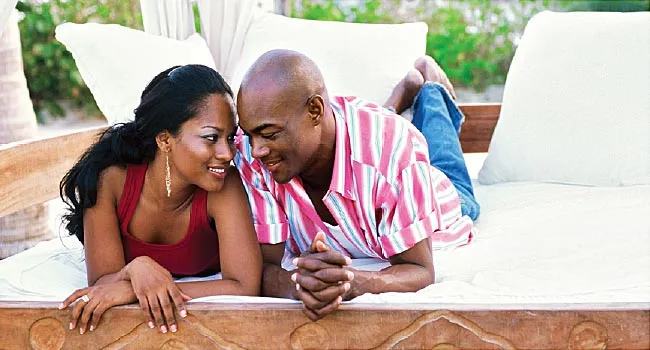my husband has ed and refuses help
 When Erectile Dysfunction Hits Your Marriage | To Love, Honor and Vacuum
When Erectile Dysfunction Hits Your Marriage | To Love, Honor and VacuumWarning: The NCBI website requires JavaScript to operate. Transition Stages in Adjustment of Wives With Their Husbands' Erectile Dysfunction Giti Ozgoli1Department de Salud Reproductiva y Midwifery, Facultad de Ciencias Médicas, Universidad de Tarbiat Modares, Teherán, IR IranSaeideh Ziaei1Departamento de Salud Reproductiva y Midwifery, Facultad de Ciencias Médicas Objectives: A qualitative and theonico study was designed to examine the adjustment process of wives with the erectile dysfunction of their husbands in transitional stages. Materials and methods: The target sampling was carried out in Tehran, Iran. Data collection occurred until theoretical saturation was reached. Sixteen in-depth semi-structured interviews were conducted with 15 women involved. The consistent comparative method of data analysis was used. Results:Women were 29-53 years old and the duration of marriage was 2-40 years. They had a different state of education ranging from the Illiterate to the Master's. The present study showed the process of adjustment of spouses with erectile dysfunction in categories of broken husband, ups and ups and downs in the sexual life of the woman, through the failure and the end of the transition. After erectile dysfunction (event) and man's reaction, broken paper occurs (change). In response to this change, reactions due to loss of privacy occur in the ups and downs of women's lives. Some women, unable to overcome failure, continue life of low quality with sexual and communicative problems (limbo). At the end of the transition, some women manage to overcome this nasty limbo state, and begin to experience a new life, with greater intimacy, with or without sexual intercourse (new beginning). Conclusions: If the transition adjustment process occurs in women, it will be effective in improving relationships and increasing privacy, including sexual intimacy. With this understanding, better therapeutic and advisory interventions can be planned for these couples.1. BackgroundErectile dysfunction (ED) is a common problem among men, and according to definitions is persistent or recurring incapacity of man to reach or maintain the erection of the penis for pleasurable sexual activity (). In erectile dysfunction, there is a change in the role of a husband to perform intimate sexual act with his wife. Some events in life, such as illness and changes in the state of health, lead to the transition process (). In fact, the transition is the response of people by passing through change, and how they experience change and respond to it is divided into different phases (-). Studies indicate the effects of ED on men including reduced self-esteem, self-confidence, sense of masculinity (), avoiding spouse (), social isolation, symptoms of depression (), denial, anger, and acceptance (). The family as a system naturally tends to be balanced. An unusual event for one member always causes a compensatory response by another member (, ). Since sex is a bidirectional relationship (), ED affects both men and women. Thus, depending on man's behaviors and reactions to this problem, the spouse's response may be different. Studies reveal that the effects of DHD on women vary from negative attitudes, dissatisfaction with the problem (), not taking any action, ignoring the problem of persevering in the sense of masculinity of men, and the relief of the relationship () to efforts for the interaction and intimacy of women to minimize the unrest of men (, ).Sexuality is a complex and multifaceted matter of life, As a necessity, sexuality requires dynamic changes in life, and as a structure, it is influenced by biological, psychological, social, cultural and spiritual factors (, ). Thus, the perception of sexuality varies in different societies. In the examination of studies, an understanding of the adjustment process of wives with the ED of their husbands is not recognized in Iran. Considering the shame of expressing sexual problems, the lack of a routine evaluation of sexual health, inadequate access to official sexual counselling centres, the lack of official sexual education, in Iran, sexual dysfunction in the axis of family power, which does not attend treatment, will result in reactions from their wives, influenced by this culture. The current study intended to seek a deep understanding through a qualitative study. Therefore, the based theory that has the ability to find the relationship between concepts and meanings by understanding the process of adjusting wives with the ED of their husbands was used.2. A qualitative and theonico study was designed to examine the adjustment process of wives with the erectile dysfunction of their husbands in transitional stages.3. Materials and Methods The study was carried out with a qualitative design and a theoretical approach based on Tehran, Iran. This method is used to obtain rich data and to clarify social processes inherent in human interactions (). The current study aimed at an in-depth examination of the experiences of wives with the ED of their husbands in the real world, and to explain their adjustment process. The study started with sampling with purpose and continued with theoretical sampling with the most variant samples. This type of sampling, by obtaining diverse information, leads to a better assessment of the nature and the various dimensions of the phenomena (, ). Men's wives with at least six months -ED entered the study. This meant that women had the necessary experience of the effects of this problem on their sexuality and adjustment. The present study collected data through interviews and field notes. The interviews were conducted first by explaining the objectives of the study and obtaining the consent of the participants. The face-to-face interviews were conducted semi-structured. The interviewer had approved courses and attended workshops for qualitative research methodology and qualitative interviews and had gained sufficient experience. All participants were assured of the confidentiality of the data and that their data would not be disclosed in the published reports. Before each interview, participants were asked to describe their marriage life, then questions were asked about sexuality and the factors that affect it. According to the level of responses of the participants, the interviews lasted between 20 and 80 minutes each. In each interview, in addition to asking questions of general study, depending on the answers, it was attempted to conduct interviews personally. The sampling continued to the theoretical saturation. Finally, 16 interviews were conducted. After the 10th interview, the data were almost saturated, but based on the use of land-based theory, the interviews continued until the analysis reached the theoretical saturation in the 16th interview. To analyze the data, the Strauss and Corbin analysis method and the continuous comparison were used. In this method, data collection and analysis were performed simultaneously (). The text extracted from each interview was encoded. First, the data were read line by line and codes were extracted open or close to the words used by the participants. The codes obtained were compared to the previous ones, and similar codes were placed in the same category, and categories were gradually formed. The categories were also compared, and if necessary integrated. In some cases, one category was divided into two or more categories, or the code of one category was changed to that of another category, and finally axial categories were obtained. Selective coding indicates ratio between categories. It should be noted that, with the analysis of the interviews, field notes of the observations were also codified. To guarantee the rigor of qualitative research, conformability, reliability and transferability were used (). The immersion in the data was one of the factors of rigor, and the examinations of the participants were also used to confirm the integrity of the data and codes. This meant that after codification, the texts of interviews were returned to some participants to ensure the correction of codes and their interpretations, and the codes that did not reflect the views of the participants were modified. The wide range of samples in terms of age, education, intensity of spouse dysfunction and duration of marriage provided greater credibility of data (). Some of the texts of the interviews were examined by observers (except for the members of the study team), and, in addition to the research team, the observers also examined codes and categories extracted, and there was a high agreement on the results extracted. To confirm the transferability, the results were also shared with non-participant women who approved the suitability of the results. The present study was approved by the medical ethics committee of the Trabiat Modares University (), and verbal consent was obtained. All participants were informed about the study method and objectives. They were informed that participation in the investigation was voluntary and they could stop that at any stage if they wish. In addition, participants were assured that their responses would be confidential and that their personal identity would be protected at all stages of the study.4. Results The result of the findings showed that a man's reactions after the ED lead to decompose his role as a husband, and under such circumstances the way a woman faces sexuality is to feel the loss of sexual intimacy and subsequent emotional losses in her marriage life. The ups and downs in a woman's life, such as satisfying her sexual needs, destroying sexual life and anguishing with her husband's inability, are the confusing and underlying inhibitors in this confrontation. The acceleration of the factors of confusion is more continuous conjugal intimacy, weakened the marriage relationship and the fight against incapacity. As a result and at the end of this transition, some women effectively spoke of sexual life, the problem and how to deal with their husbands. Another group of women who consider this problem and its consequences as a purely men-related problem fit their sexual needs to those of their husband, suppress or ignore it, so that they can, with an overwhelming strategy of keeping the family, remain committed to marriage life without sex, or with bad sex (). It presents personal characteristics of the participants in brief. Based on the data, the process of adjusting the wives with the ED of their husbands was identified in categories of broken paper, increases and decreases in the sexual life of women, through the failure and the end of the transition (). Straus and Corbin used the coding paradigm to connect events. This paradigm focuses on causal conditions, context, intervening condition, consequence and so on. It is used for the simplicity of discovering the constructs and the relationship between phenomena, concepts and categories (). Table 1.Details Min-Max Age, and 29-53 Duration of marriage 2-40 Number of children 0-5 Education Illiterate – Master Age when he gets married 11-36 Number of marriages 1-2 Occupation Housewife – employee Age of spouse, and 32-80 Age difference with spouse 1 to 36 years Table 2 Axis code Disaggregation in the role of the husband of the man Persistence of DysfunctionInfluenced and Influenced Associated Factors of DysfunctionRespons to TreatmentTreatment of follow-upShort sexual needs The Selfish Attitude of ManDesperation (man)Avoid wife Lack of CommitmentInatentionDenialFrustration Ups and downs in woman's married life Satisfaction of the sexual needs of the woman Sexual relationship acceptable to womanDemand to meet the sexual needs of the woman Sexual consciousness Destruction of sexual life for the woman Sexual relationship unacceptable Avoiding the relationship Ignoring the sexual needsThe anguish of man due to the inability of the husband FailureNegative feelings towards the husbandFamily place lossSpicion about the marriage commitment through failure Incapacity treatmentDoctor-free treatmentTreatment with consulting the doctor Continuing the weakened relationshipDisrupted relationshipConjured relationshipConjured relationship More marital privacy More sexual intimacy More non-sexual intimacy End of transition Compatibility and AdjustmentSexual reconciliationRepression of sexual needs Commitment to marriage without sex Well... Couple talking about sexual problem Change in women's belief and behavior to resolve problemActive and efficient participation of women in the search treatment4.1. Disaggregate in the Role of Man's HusbandThe intensity of ED in men is followed by the inability to have a normal sexual relationship. This dysfunction can be serious with total or partial disability with sporadic sexual intercourse. The severity of the disability may vary depending on factors that cause disorder such as diabetes, addiction, old age, or psychological factors, as well as the response of men to treatment. 4.2. Inability of man to establish a sexual relationshipParticipant 10: 7-8 years have passed since the problem began, but it is not as bad as to bother me. Your problem is occasional. I think it happens when your blood sugar is high (43 years, spouse 49, married for 32 years). Participant 3: He has been with doctors, and taking medications for three months, is much better (27 years, husband 32, married for two years). 4.3. Disadvantaged treatment On the other hand, these men neglect the essential treatment; sometimes because of the slightest attraction of current sexual life, or because of selfish attitudes. Participant 14: He doesn't want to do anything about it. He's been to the doctors, and he took his medicine once, and left the treatment halfway. He doesn't want to solve his sexual problems, he's lying, he hasn't been with the doctor (30 years, husband 34, married for six years). Participant 2: He says he couldn't do it from the beginning and that's it. He's enjoyed his relationship with his first wife, now it's not important to him. But sexual intercourse is important to me (44 years, husband 80, married for eight years). 4.4. Desperation (Man)After this disorder, the man shows reactions to this disability, especially if the disability is complete, then he feels that he cannot meet his wife's sexual needs. Thus, he shows reactions such as rejection and avoiding his wife, or even aggression, and neglecting, therefore the consequences will be that the wife does not approach him, hiding the problem, denial, and even exhaustion, or not commitment to marriage life. Participant 4: I did not know that this sexual problem affected the mood of men, he takes everything, he is very isolated, he escapes from me, and is so far, making the relationship very cold and changes our moods, making us nervous (33 years, husband 32, married for two years). Participant 2: Now he is angry when I say I need [sex], he chooses a fight (44 years, husband 80, married for eight years). Participant 14: I'm upset that I see so much porn movies. Six months ago I told him I was relieved when I looked at them. And I was angry and I told him; you have a wife. He knows what hurts me and how much I cry, he's going on (30 years, husband 34, married for six years). 4.5. Ups and Downs in Woman's LifeFollowing previous sexual experiences or their natural need for sexual satisfaction that has been a goal of their marriage, awareness of sexual needs after marriage, or meeting sexual needs is important for these women. 4.5.1. Satisfaction of the sexual needs of the participating woman 1: Before marriage, I did not know this feeling at all. My need was stimulated with yours, we enjoyed it a lot. Now that he has no needs, it's like I don't have any, either. I want our sexual relationship to be as before, but it cannot (29 years, husband 45, married for five years) 2: My need is stimulated with that of my husband. For a month or two, when he used the medication, our relationship was good, we did it twice a week, and I was in high spirits. I felt younger. Life is all about this. It's not that important to my husband because he enjoyed his first wife. When we had sex, I was so happy, now I feel I am withered (44 years, husband 80, married for eight years). Participant 13: Before this problem, we had sex 2-3 times a week. We both enjoyed it a lot. It's so important. I think it strengthens life. A woman can be completely in charge of her life when she does. If it does not exist, privacy is lost (38 years, husband 37, married for 20 years). Participant 3: It can be due to the mentality that you should enjoy it, and when you don't feel well. You can't understand if you haven't experienced it. A normal sexual relationship is good and pleasant. I don't know about frustration, what I'm supposed to say; it's so bad (27 years, husband 32, married for five years) Participant 8: Well, I liked it, I would prepare, and I used to say, I like to be with my husband. We both enjoyed it. Now I'm hurt, it's like I don't have a husband. That's how it is, you can do nothing about it (43 years, husband 45, married for 23 years)4.5.2. Destruction of sexual life for the behaviors and reactions of a man, not only because of lack of intimacy due to erectile dysfunction, but the rupture in the role of the man as the following husband, causes the loss of sexual intimacy, which results in the empty emotional life in a woman. Participant 14: I liked that I was happy when I invented, and I understood, but it is not important for him, he is indifferent. I liked to hug, pett and see myself with love. When my needs and expectations of affection were not fulfilled, I became frigid (30 years, husband 34, married for six years) 5: He gives me his back and sleeps, he cannot understand. It deprives me of a simple kiss and a hug. I feel like I'm getting away from him, also him from me (33 years, husband 40, married for 14 years). Participant 13: He slept on the ground, far from me. Our relationship had become very cold. He had become so sensitive that even if our feet were accidentally touched, he would go away (38 years, husband 37, married for 20 years). 4.5.3. The difficulty of the woman due to the inability of the husband When these women face inappropriate compensatory behaviors of their husbands and the lack of affection and sexual intimacy, in addition to feelings of frustration for lack of sexual intimacy, they also develop negative feelings towards their husband, and find their female place lost, as someone who can satisfy the sexual needs of their husbands, and may even suspect the participation of other women in their husband's life. Participant 16: Now it's two years that we haven't had sex, we don't even have a previous game, I don't love it at all. I don't think he loves me either (38 years, husband 41, married for nine years). Participant 7: When I approach him, he turns me away, says he is tired, and wants to sleep. I feel distressed; I feel like she doesn't even look at me. I feel useless. Any woman, as ugly and indefense as she wants to be loved by her husband. But I have no such feeling. When he comes to me every month, I tell myself, maybe he's not so cold and he still loves me (42 years, husband 48, married for seven years). Participant 5: I always say that it is like a servant in this life. I don't think he's a wife. I'm sorry, I said go with someone you want. I feel that your heart is no longer with me, and I don't like it anymore. He's not satisfied. I feel like you're with someone else and enjoy being with her (33 years old, husband 40, married for 14 years). Participant 1: You feel bad when your husband can't do anything, he's become worldly. He has less feeling, less affection (29 years, husband 45, married for five years). Participant 11: I feel angry when my needs are not met. I hate him (33 years, husband 60, married for two years). Participant 4: After 3 months I became a suspect, and I said, do you not like me anymore? Don't you like it? (33 years, husband 32, married for two years). 4.6. Crossing frustration There are different ways to go through this scenario for couples. Sometimes the man or even the woman takes action to self-treat ED without consulting the doctor, or exchange doctors with the hope of a quick cure for this disorder, or problems associated with infertility. 4.6.1. Deal with the inability participant 15: My husband has been with the doctors. Every two or three months, take a pill and drink tea on top, and it's ready in ten minutes (53 years, husband 70, married for 40 years). Participant 4: We have tried different doctors, and we have used any tablet they prescribed, we have even tried traditional medicine, and medications warned on television, but he was fine for a short time, and then back to square one (34 years, husband 33, married for two years). 4.6.2. Disabled Continuing Relationship Some people continue their marriage life despite their loose relationship, broken marriage relationship, lack of sexual intimacy and subsequent emotional vacuum. Participant 16: We have nothing in common to talk about. We haven't had sex for two years. He hit me once, and our life has still gotten worse since then. I don't love him at all, and I don't think he loves me, either (38 years, husband 41, married for nine years). Participant 14: I have no feelings for him anymore. I don't want to see him right now. It's a troubled feeling I have towards him. A few days ago I was on a mission, and I was so worried, I didn't want it to touch me. When he is around I am very anxious (30 years, husband 34, married for six years). 4.6.3. More Marital Intimacy In addition to these actions, some people experience more sexual and non-sexual intimacy without sexual intercourse. Participant 1: I say it is a good method, let's try it. Make love without sexual intercourse (29 years, husband 45, married for five years). Participant 3: It's not your fault, poor man. Especially, he's become so kind afterwards. The frustration is forgotten (27 years, husband 32, married for three years). 4.7. End of Transition At the end of this transition, some of these women purely consider it a problem related to their husband, and adjust their sexual needs to those of their husband. Therefore, whenever she could and wanted, they would be intimate, or if the man was not able to do so, then the woman will not want to or suppress it, or she ignores it for as long as she can to preserve her family and married life without sex. 4.7.1 Compatibility and Adjustment Participant 5: There are two options; he will not change. Or I have to play, what I can't do, for my life and my children, or I have to kill this need, and keep busy with other things. Since it is not a change of gona (33 years, husband 40, married for 14 years). Participant 12: He says that if he didn't mind so much, it wouldn't be like that. Of course, it's not true. It has to do with your diabetes. I don't want to have sex anyway because I have to raise 3 young people, which is the most important thing (42 years, husband 48, married for 23 years). 4.7.2. Well being However, only some of these couples talk about their sexual life, in relation to this problem, and how to solve it. Participant 1: Now, we talk about this problem. It wasn't just about this relationship he was with. I think he's sick, and I have to help him. I didn't think he couldn't satisfy me, since my love for him is more important than sex. Even if I don't want to, I force it. Sometimes I go with him, and he screams, but he wouldn't let him go. My pride was at stake, but I insisted, though, it wasn't as nice as it was before. With this disease we found things we didn't know before. It was like an incentive to get to know each other better (29 years, husband 45, married for five years). Participant 13: I looked at myself and my behavior a long time, and I realized that my appearance had changed so much that my husband did not like it, and he did not pay attention to it as before. The psychiatrist gave me advice. I sacrificed my pride and took the lead. I started taking care of myself again, lost weight, and paid more attention to my husband. This led my husband to change a lot. When I changed, it changed. After 12 months we have sex again (38 years, husband 37, married for 20 years).5. DiscussionResults showed that in couples the normal sex life, the man's reaction to the ED changes the marriage relationship. Reactions perceived by men's wives with ED are cases such as avoiding the wife or even aggression and loss of interest, concealing disorder and denial and exhaustion, or lack of commitment to matrimonial life. These effects of ED on men in other studies have been mentioned as reduced libido, feeling of not being loved and not loving (), condemning and considering the sexual partner as guilty, greater fidelity (), reducing the relationship with the sexual partner, fear of intimate behavior with the spouse and not being able to meet their needs, and thus avoiding (), social isolation, and symptoms of depression (), reducing self-esteem and self-confidence (), less sense of self-confidness. Haddon quotes that ED can cause behavioral changes in the patient such as avoiding intimacy, and creating a temperate mood, which leads to increased anxiety and greater ED, and therefore create a vicious circle of greater anxiety and failure and induced reactions (). This rupture in the husband's role due to man's behaviors and reactions with ED is the end of normal sexual life, leading to reactions in woman as negative feelings towards the husband and the loss of his feminine place as someone who can sexually satisfy her husband. The vicious cycle of greater anxiety and failure due to ED occurs both for the patient and his partner in life (). This action and reaction of couples leads to the loss of sexual intimacy and eventually to the emotional vacuum in the ups and downs of women's sexual life. Others also argue that relationships and emotional problems are the most important perceived sexual problems (, ). Relationship and intimacy are more important to women than sexual intercourse (, ). And the non-sexual reward of sexual response in women is emotional intimacy, well-being and lack of negative effects due to avoiding sexual intercourse () of which the case was private. In fact, an inappropriate interpersonal relationship that occurs in patients with ED () develops both general and sexual relationship problems between some women and their husbands. By passing through these changes ( limbo) some women have to continue the marital relationship despite agonizing instability and even emotional separation, with a low quality of life or sometimes try to solve the problem through inappropriate self-therapy and autofocus methods. Other studies show that there is a relationship between ED , quality of life , unfavourable association (-), growing communication problems, and lower intimacy among couples (), although solving the problem of communication is the most important factor in long-term and effective treatment (), the adjustment in communication is the strongest predictor in the success of ED treatment (). Thus, these women are not successful. Some couples try to overcome this problem by creating more sexual and non-sexual intimacy. For these women, adjustment to change is completed through the transition process as a complex and essential mechanism. Therefore, when this belief is changed or created in the woman who is not a problem of affection, but a disease, that in her influence on marriage life women also have an effective role, and in fact the effects of this problem work in both ways, then with active participation they can take steps to solve the problem. In this way, in addition to changing behaviour and attitude towards her husband, the woman becomes an effective partner and encourages her husband at all stages of diagnosis and treatment. Based on the change of attitude of women, a sense of approaching and forming more sexual and emotional intimacy (a new beginning) among couples (if the erectile problem has been solved or not). Although the woman suffers from sexual intercourse, it is transitional, and frustration occurs every time with an unsuccessful intimate relationship. Grester et al. () in his theoretical study based on the objective of the motivation of treatment in men with ED and the role of its partners stated that the measures taken for the motivation of treatment included talking to one another, and highlighting the fact that it was a common problem for both partners. Although talking about this topic was unusual for women, when she was the initiator of the talk and encouraged man, the result was very promising. This talk reduced the feeling of despair and obstacles in man, and reduced the sense of women's guilt. The woman who speaks results in increased treatment seeking behavior in man. It wasn't just talking, but how to talk was important. Thus, the couple was advised to begin the talk, to speak of their own feelings, and to say it was a common problem, and to speak when the man was in good mood and happy. In fact, although women's participation in more successful and sustained treatment of DHD has been emphasized in various studies ( -) clearly, for the successful effect of women in treatment, both partners must attend the clinic (, ). The problem is that men often attend only the clinic, and for the few wives they are invited, there are cultural, social and religious obstacles in their evaluation and in nearly half of the men with ED, talking to their sexual partners or consulting with a specialist is difficult (. When men have the incentive through their wives (), or through the information in articles, the media, friends and counseling, assist in treatment (). In a national study, only 10 per cent of men attend treatment sessions (), and in which they attend, even if ED is resolved through oral medications, it does not necessarily lead to sexual satisfaction, and there are still communicative problems such as the feeling of insecurity, anger and despair. Thus, the treatment approach for this disorder is a combined medical and medicinal treatment, psychotherapy and sexual therapy, with emphasis on cognitive behavioral change and communication reform among couples (, ). Unfortunately, however, most of these couples do not even enter into any discussion to resolve the problem, and without any educational or advisory and therapeutic intervention they continue to live in marriage without sex or with bad sex, which could affect their general relationship. Therefore, although the present study confirms the results of other studies on the central role of women in the successful treatment of the DDR, the valuable finding of this study is identifying the transition process that follows the breakdown of the role of the husband. In addition, the behavioral-cognitive changes found by women through their own efforts, the help of specialized counseling, and life experiences led to the improvement of their relationship with the spouse, so that they could compensate for lost sexual intimacy by having sex without sexual intercourse without sexual intercourse. Therefore, women ' s targeted interventionist programmes towards men at least improve the relationship. This will cause greater motivation for men to treat, increase the rate of success and continuation of treatment, and satisfaction induced by treatment especially in women. These are recommendations for future studies in Iran that could show positive or negative results. The present study showed the process of adjusting wives with the ED of their husbands in categories of disaggregation of the role of husbands, rising and falling in the sexual life of women, going through the failure and ending of the transition considering different stages of transition. If the transitional adjustment process happens through women, the minimum achievement for women will be an improved relationship and a reformed behavior and attitude. The process in women is probably an important step towards the encouragement of their husbands for the treatment and continuation, and the wives of men with ED can be taught communicative skills, so that they can initiate and continue the relationship, and actively listen to their husband, so he can express his thoughts and emotions and understand the feelings of his wife, and try to resolve the problem constructively. The most important limitation in this study was to interview women only, so the issues were investigated only from the perspectives of women, if there were no obstacles in interviewing men, the results would probably be richer. The lack of a definitive diagnosis of ED by a urologist or psychiatrist and the statements of the participants were one of the limitations. However, given the type of study (calitative), the experiences of women were the criteria. The strongest point of the study in the examination of the adjustment process of the wives with the ED of their husbands was the attention paid to different phases of the transition stages, as expected from the based theoretical design. Another important strong point in the study was to have the maximum variability in samples relating to the severity of the DHD in their spouses, the duration of marriage and age. Although sexuality is a culturally sensitive issue and people are ashamed to talk about it; given the interviewer's communication skills and experiences, important information was obtained. These findings, especially the attitude of women towards men, were still another strong point of the study, which occurred in the cultural context. Acknowledgements The authors wish to thank all the participants, the University of Tarbiat Modares for the approval of this project, and also Professor Mohamad Reza Safarinejad, the urologist and midwives: Ms. Badiee and Ms. Khosravi for their assistance in enlisting participants, as well as the Health Deputy of Shahid Beheshti University of Medical Sciences. FootnotesImplication for health/practice/research/medical education policymakers: Cognitive-behavioural changes found by women through their own efforts help the specialized counseling, and life experiences led to their relationship with spouses to improve their relationship, so that they can compensate for the loss of sexual intimacy by having sex without sexual intercourse. Therefore, the interventionist programs, directed by women towards men, at least improve the relationship. This will cause greater motivation for men to treat, increase the rate of success and continuation of treatment, and satisfaction induced by treatment, especially in women. These are recommendations for future studies in Iran that will show positive or negative results. Authors' contribution:Giti Ozgoli designed the study, performed the interviews, method of analysis used and continuous comparison, created the underlying theory and prepared the manuscript. Saeideh Ziaei was the supervisor in every step. Fazlollah Ahmadi was the qualitative research consultant, cooperated at all stages, modified the study when necessary and helped finish the study. Mahyar Azar was the scientific advisor. Financial disclosure: No conflict of interest. Financing/Support:This project was supported by the University of Tarbiat Modares. ReferencesFormats: Share , 8600 Rockville Pike, Bethesda MD, 20894 USA

My Husband has Porn-Induced ED: What Can I Do? Covenant Eyes Blog

My husband has had ED for 4 years. I don't know what to do except open the marriage or divorce. What should we do? - guyQ by AskMen

When Erectile Dysfunction Hits Your Marriage | To Love, Honor and Vacuum

What should the frustrated wife of a man with erectile deficiencies do? | Savage Love | Chicago Reader

My Husband Has Erectile Dysfunction. Here's How We Got Our Sex Life Back. | Prevention

When You Don't Want Sex With Your Husband - Marriage Missions International

What do I do if my husband has ED but refuses to talk about it or to even go to the doctor? - Quora

My husband refuses to address his low libido | Family | The Guardian

Is it me? When your partner has erectile dysfunction | The Ohio State University Wexner Medical Center

7 Steps After You Discover Your Husband Looks at Other Women Online

What do I do if my husband has ED but refuses to talk about it or to even go to the doctor? - Quora

If You Want to Help Your Partner with Erectile Dysfunction, Read This

I Don't Want to Have Sex With My Husband: Is This Ever OK? | NextTribe

I want to know every detail of my wife's sexual history. She refuses to tell me.

Why Sex Is So Important to Your Wife | FamilyLife®

Porn-induced erectile dysfunction: How does it happen?

When Erectile Dysfunction Hits Your Marriage | To Love, Honor and Vacuum

6 Reasons Your Husband Doesn't Want Sex Anymore—and What to Do

My husband never wants sex and doesn't even cuddle me. I yearn for love or affection | Life and style | The Guardian

What to Do When Your Loved One With Bipolar Disorder Refuses Treatment – Bridges to Recovery

When Erectile Dysfunction Hits Your Marriage | To Love, Honor and Vacuum

How to deal with erectile dysfunction in a marriage
Ask Ada: How Can I Help My Husband With Erectile Dysfunction? - Folks

Erectile Dysfunction treatment, causes, symptoms, cure & medicines: Please help! My husband has erectile dysfunction

Ed Sheeran refuses to furlough his Bertie Blossoms staff | Daily Mail Online

When Couples Fight About Virus Risks - The New York Times
Husband Not Interested in Sex? 10 Reasons Why & 7 Powerful Solutions!

When Erectile Dysfunction Hits Your Marriage | To Love, Honor and Vacuum

Do You Want to Die in an I.C.U.? Pandemic Makes Question All Too Real - The New York Times

If You Refuse A COVID-19 Vaccine You're Canceled

A Partner's Guide to Erectile Dysfunction

My Husband's Porn-Induced Erectile Dysfunction Seriously Hurt Our Sex Life

Pornography Addiction Destroyed My Marriage - Dealing with Sex Addictions

I'm not attracted to my husband: Marriage without chemistry?

Video of Melania refusing to hold Donald Trump's hand is awkward

Women: Do We Understand What Rejection Does to Husbands? | To Love, Honor and Vacuum

My Adult Son Moved In. It's a Nightmare. Can I Kick Him Out? - The New York Times

I Refuse To Make My Kids Ashamed Of Their Bodies So We're A Naked House | Learning

Enjoying Your Husband's Semen | The Forgiven Wife
Posting Komentar untuk "my husband has ed and refuses help"